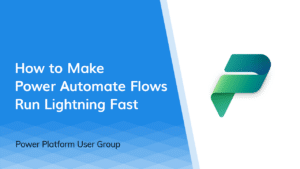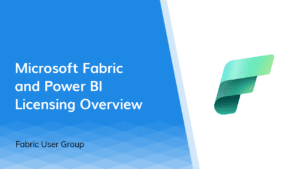The Medicare experience of the past is being transformed for the future. This new era of Medicare is tech-forward and caters to diverse populations who have a variety of intrinsic motivators rarely seen in previous generations.
Less healthy, yet with higher expectations for personal fulfillment, future participants of Medicare will make new demands of the system that may be eased using healthcare data platforms that are CMS compliant.
Technology is already proving to be a powerful tool to empower all healthcare stakeholders to deliver superior care and access. These new demands will spur a shift in how one of the largest taxpayer-funded programs serves our nation’s elderly, today and tomorrow.
Find out how Medicare is changing, and how to position your organization to change along with it.
Medicare as We Knew it
Medicare moves at a glacial pace. Comfortable with the status quo and perpetuating processes because of “the way it’s always been” mentality, Medicare is predictably analog and slow to leverage technology.
While current Medicare participants belonging to the “Greatest Generation” may be comfortable with the low-tech process, they are often victims to disparate data and complicated coding which amplifies fraud and associated costs with care.
It also comes as no surprise that the lack of cross-department coordination results in a system that is slow to incorporate innovative services, tools, and treatments that may otherwise benefit patients and improve health outcomes.
Siloed Data Negatively Impacts Patient Care
Due to member-related data and information being difficult to access across departments, it’s exceedingly problematic for providers to get the “big picture” of an individual’s health. This lack of data renders an incomplete view of each patient and their circumstances.
Unfortunately, the burden of fragmented data and lack of transparency falls on the patient and their family, making it difficult for patients, families, and clinicians to advocate for better and more individualized care that delivers positive long-term health and wellness.
Medicare is About to Be Disrupted
Medicare as we knew it is about to change. We’re not talking tidal pools here, but tidal waves.
Each day 10,000 new participants join Medicare. 3.5 million new joiners per year are quite a large sum and deserve their own nickname. In fact, a nickname has already been coined, and that’s the “Silver Tsunami.” This shouldn’t come as any surprise considering that by 2025, 20% of the population will be over 65.
The silver tsunami consists of baby boomers, aged 55-75 years old. This diverse group reflects a variety of experiences, expectations, and attitudes, particularly when it comes to matters of health. What’s more, it’s rumored that the current administration may lower the age for Medicare eligibility to 60, further diversifying the attitudes and needs among those eligible.
What Do We Know About Boomers?
Boomers are not traditional Medicare consumers. In other words, when compared to the Greatest Generation, baby boomers have different worldviews and attitudes in terms of aging and health. In addition to opting to “age gracefully,” boomers are more adept at technology than the greatest—and some may say—least technical generation.
Generally, boomers are comfortable with online research and arming themselves with information found online. Their expectations for Medicare will be to maintain a consistent level of care that they’ve experienced during their working years. As the first generation entering their Medicare years are well-versed in tech and information gathering, boomers are better informed regarding their health and care options.
Compared to previous generations, baby boomers are signing onto Medicare in poorer health. Boomers are more likely to join Medicare with at least one chronic condition. With obesity rates at 68%, boomers entering their golden years are requiring more medications and dietary interventions.
Interprofessional healthcare teams must work fluidly to better serve patient needs.
COVID as the Catalyst in Medicare
COVID accelerated a longstanding trend in which the future of aging and healthcare was focused on the home. As seniors were increasingly isolated in their homes, combined with assisted living facilities being overtaxed due to COVID, digital-first healthcare data platforms have proven to be a lifesaver in extending technology access and new care options.
As a direct result of the pandemic, we have seen rapid shifts in Medicare reimbursement for remote patient monitoring and preventative care. The pandemic has accelerated technology adoption, not only as it concerns CMS, but IoT and smart devices as well.
For example, digital-first healthcare technologies have improved patient care in a variety of ways, including:
Convenient Prescriptions
Healthcare technologies are facilitating new ways for seniors to receive prescriptions. If patients lack transportation, they simply use technology to order, schedule, and deliver prescriptions through their providers to be delivered directly to their homes.
Flexible Scheduling
Healthcare technologies are giving providers greater flexibility in the community-care setting. Patients may easily schedule in-person clinician visits to their adaptive living communities at a time convenient to them so they may exert greater self-efficacy over their healthcare.
Improved Support
Healthcare technologies are improving connectivity. As families move further apart due to job relocation and modern-day demands, senior family members may continue to feel supported thanks to tools that keep families connected and communicating, no matter the distance between them.
Medicare Spending is on the Rise, Are You Ready?
As the leading expenditure in the U.S., the future of Medicare will be driven by new behaviors and persuasive economic incentives. Medicare is projected to rise from $835 billion in 2020 to $1.7 trillion by 2030. In 2035, spending for Medicare is projected to be 8% of the total GDP.
Due to the financial costs at stake, payers and providers will need to find a way to more easily work together. Healthcare data platforms expedite communications between payers and providers, facilitating collaboration to improve patient health outcomes.
Additionally, data may be digitized, organized, stored, and shared across the healthcare ecosystem, thereby curbing complicated medical coding errors that are currently an egregious cause of Medicare fraud.
With the influx of funds, the CMS has instituted a rule that drives innovation and care options for seniors. This motion puts more attention on how technology may be utilized to reduce fraud and waste and speed up the reimbursement process.
What the Future Holds
Health plans are putting pressure onto their provider networks to align with payers and patients to improve care delivery, outcomes, and overall performance.
Given the CMS guidelines to incorporate more innovative technologies to meet the needs of an aging and diverse population, providers are well-advised to blend technology that streamlines their services while being secure and CMS compliant.
Given the varied interests, motivations, and expectations of incoming Medicare participants, it behooves providers to consider more opportunities for patient engagement, such as rewards-based programs delivered virtually that invite patients to practice health literacy, self-efficacy, and personal empowerment.
All patients, whether boomer or otherwise, should have the tools to advocate for themselves within this changing system. Skypoint Cloud is one of these important tools…we are honored to be here and offer a product that supports seniors and the organizations that serve their best interests.











